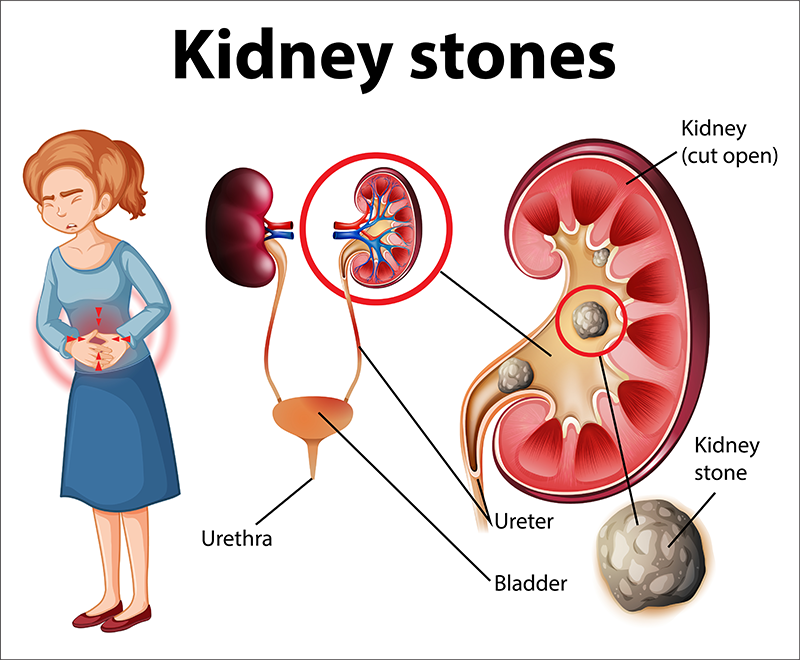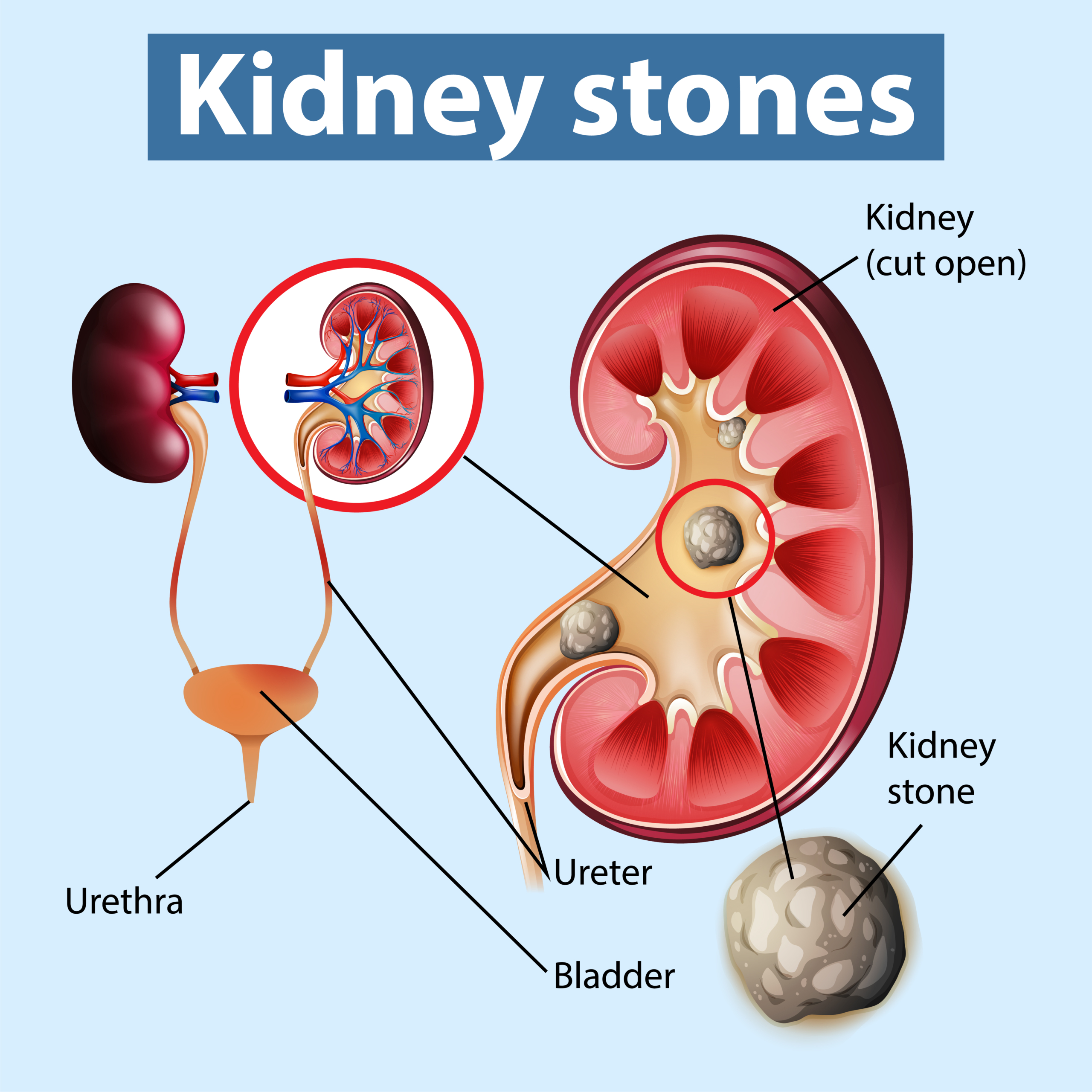RIRS Surgery for Kidney Stone Removal
RIRS or Retrograde Intrarenal Surgery is an endoscopic surgery performed to eliminate renal stones by arriving at the kidney from the ureter. RIRS strategy utilizes a survey tube called fiber optic endoscope and a laser fiber – Holmium – to treat the renal stones. When the enormous stone is eliminated, little sections of the stones are taken off through stone containers. Sometimes, a stent might be pushed in the kidney to improve seepage.

In this strategy, the Stone is squashed, or impacted by utilizing a laser test or can likewise be physically taken out through forceps. The medical procedure is performed by a urologist who has a specific aptitude in RIRS. During the technique, the patient is given spinal or general sedation and the endoscope is embedded in the body through the urethra then into the kidney; the medical procedure doesn’t include any cuts and consequently, has a quick recuperation time. With RIRS a larger part of renal stones can be cleared without open surgery.
Besides, with the ongoing innovative advancements in the administration of renal stones, RIRS has arisen as a truly solid, protected, and proficient technique. The fundamental reason for a renal stone treatment is to clear the stones totally with the least dismalness – RIRS clears renal stones through adaptable ureterorenoscopy and lithotripters including holmium laser, guaranteeing no hint of stones are left. Besides, progression in related gear, for example, manage wires, ureteral access sheath, and stone containers have upgraded the viability of the RIRS system. Starting today, RIRS is a prime strategy for treatment for renal stones that are under 2 cm and can’t be effectively treated by means of different strategies.
Who can get an advantage from RIRS?
- Prior attempts to eliminate renal stones have failed
- Stones are huge in size
- There is a tumor in the kidney
- The patient included is a child
- The patient has draining issues
- The patient is corpulent or obese
- The patient has complex anatomical kidneys
- Persistent is on anticoagulants
Advantages of the Surgery
- Minimally invasive
- A straightforward and faster method
- Shorter recovery time
- Less painful
- Less morbidity
- Insignificant bleeding
- No danger to the renal tissue
- Less inconveniences
Risks of the Surgery
Difficulties or dangers related to RIRS are genuinely phenomenal and happen just in very few cases.
- Fever
- Flank torment/pain
- Urinary disease
- Transient hematuria
- Intense urinary maintenance
- Ureteral pelvicalyceal scraped spot
- Fornix burst
- Ureter separation
- Dying
- Sepsis
- Injury to kidneys
All things considered, RIRS may not be a careful choice if the size of the renal stones is more than 20mm in diameter or there are a few little stones. Such cases are not the ideal circumstances for RIRS and can be dealt with better through an alternate strategy.
Taking all things together, RIRS is an effective and feasible treatment for renal stones with high achievement rates and lower difficulties.
How the surgery is performed :
Before the Surgery:
The specialist will direct a few tests to investigate the situation of the stones, the overall ailments, just as a reaction to sedation – in any event, fourteen days prior to booking a retrograde intrarenal surgery. The specialist may do the pre-employable stenting 14 days before the real methodology if necessary in a couple of cases; this stenting makes it simpler for the ureteroscope to enter the kidneys effectively since the ureter is as of now enlarged. Additionally, upon the arrival of the medical procedure, the patient needs to quick for in any event 6 hours.
During the Surgery:
The patient will be affected by sedation, and the urologist will utilize an endoscope – a thin, flexible tube – to reach the bladder through the urethra and afterward further to the territory of pee storage in the kidney. During this cycle, the endoscope will distinguish stones and shoot them with a laser. Further, the Dj stenting completed fourteen days’ earlier assists with smoothening and secure the recuperation time; much of the time, patients are released on the following day post-medical procedure.
After the Surgery:
Post completion of the medical procedure, a pee catheter can be put in the urethra to minimize the pain and issue while peeing; the catheter is set for a day or more according to the case premise. The patient is then placed in a recuperation room and a 24-hour rest is exhorted. Further, the patient necessities to drink a ton of liquids particularly water to pee in any event 2.5 liters consistently; this assists with keep contaminations off. Likewise, on the off chance that the patient is solid and totally fit to continue regular exercises, he/she can be released right the following day of the medical procedure. However, a follow-up with the Specialist is important.
Why Choose Urolife Clinic, Pune?
- We have qualified Surgeons who have treated various Patients with urological related conditions.
- We have our own analytic focus to analyze the real issue and to fix it successfully.
- Ordinary Follow-ups are done through our clinical agents.
- No holding up time, Book your appointment now with our master to get instant treatment.
- The expense of Retrograde Intrarenal Surgery or RIRS Treatment is nearly less.

Dr. Irfan Shaikh – RIRS Surgery for Kidney Stone Removal in Pune

Dr. Irfan Shaikh
Consultant Urologist & Uro Surgeon (MBBS, MS (Gen. Surgery), M.Ch. Urology), is one of the Top Urologists In Pune
Dr. Irfan Shaikh – Consultant Urologist & Uro Surgeon (MBBS, MS (Gen. Surgery), M.Ch. Urology), is one of the Top Urologists In Pune. A gold medalist in the department of Urology, Dr. Irfan Shaikh specializes in Female Urology in India. He has finished his education from one of the top colleges with MBBS from Byramjee Jeejeebhoy Government Medical College & Sasson General Hospital in Pune and MS in general surgery from PGI, Chandigarh. Moreover, he has also done M.Ch in Urology from Topiwala National Medical College & BYL Nair Charitable Hospital. Having so many degrees from prestigious institutes, Dr. Irfan Shaikh ensures to treat his patients with all the knowledge that he has accumulated over the years.
Urolife provides you all kinds of Urological Treatment Services such as Kidney Stones Treatment, Bladder Stones Treatment, Prostate Cancer Treatment, Kidney Cancer Treatment, and Urinary Tract Infection Treatment, RIRS Surgery and PCNL Surgery for Kidney Stone Removal and Andrological Treatment Services such as Erectile Dysfunction Treatment, Sexology Therapy, Penile Enlargement Services, and Premature Ejaculation Treatment, Varicocele Surgery.
FAQ’s
Typical symptoms of bladder stones include: lower abdominal pain, which can often be severe (men may also have pain in or around their penis) pain or difficulty when peeing. peeing more frequently (particularly at night)